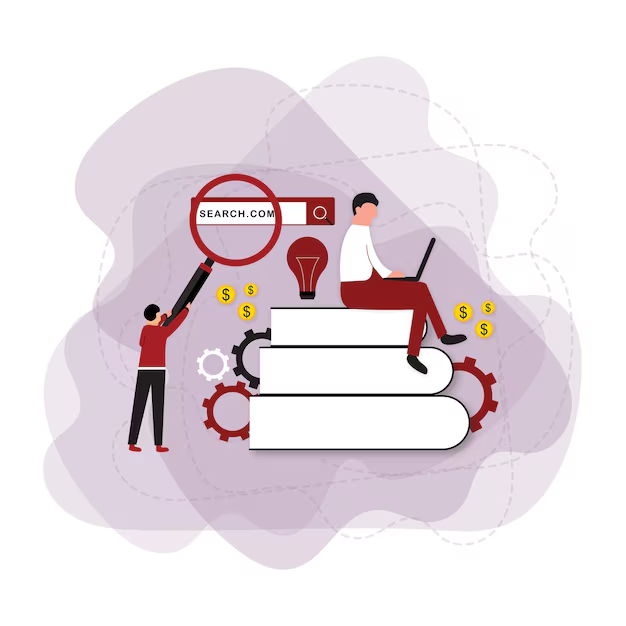In the rapidly advancing world of technology, engineering colleges play a critical role in shaping the future of innovation. These institutions serve as the breeding ground for the next generation of engineers who will go on to create groundbreaking technologies that drive progress in industries such as healthcare, manufacturing, energy, and more. At the Accurate Institute of Management and Technology (AIMT), we recognize that fostering innovation is not just about equipping students with technical knowledge, but also about nurturing creativity, critical thinking, and the problem-solving abilities necessary to address real-world challenges. This article explores how engineering colleges like AIMT contribute to technological advancements and why their role is vital in shaping the future.
1. Providing Cutting-Edge Education and Research Opportunities
The foundation of any technological breakthrough begins with education. Engineering colleges offer a structured environment where students can learn from the best in the field and develop the technical skills necessary for innovation. At AIMT, students are exposed to the latest trends in engineering, whether it’s robotics, artificial intelligence, sustainable energy, or other emerging fields.
Moreover, engineering colleges are hubs of research and development. Students and faculty alike engage in groundbreaking research that can lead to new inventions or improvements in existing technologies. Through state-of-the-art laboratories, dedicated research centers, and industry collaborations, AIMT fosters a research-driven culture. These initiatives provide students with the opportunity to explore novel ideas, test prototypes, and engage in real-world problem-solving.
The combination of theoretical learning and practical research opportunities enables students to understand not just how technology works, but how it can be pushed forward to solve global problems.

2. Encouraging Innovation through Entrepreneurship Programs
Innovation often goes hand-in-hand with entrepreneurship. Many of the world’s most successful technologies and startups began in university labs or were the brainchildren of students at engineering colleges. AIMT recognizes the importance of fostering an entrepreneurial mindset among its students. The institution offers programs and platforms that encourage students to think outside the box, develop their own ideas, and turn them into tangible innovations.
Through entrepreneurship cells, incubators, and mentorship programs, AIMT provides students with the tools and guidance to launch their own startups or collaborate with others in the field of innovation. These programs teach students not only technical skills but also the business acumen needed to bring a product from concept to market. Encouraging students to develop and pursue their own projects can lead to the creation of new technologies, products, and services that have a real impact on society.
3. Promoting Collaboration Between Students and Industry Experts
One of the key ways engineering colleges shape technological innovations is by fostering collaboration between students and industry professionals. In an ever-evolving technological landscape, it’s crucial that students are aware of the latest industry trends and have hands-on experience with the technologies they study. AIMT recognizes this and actively partners with industry leaders and companies to provide students with opportunities for internships, workshops, and live projects.
These collaborations ensure that students work on real-world challenges, offering them a platform to apply their knowledge and ideas in a practical context. The exposure to industry best practices, coupled with the opportunity to work on cutting-edge projects, equips students with the skills and confidence to innovate within their chosen field. By bridging the gap between academia and industry, engineering colleges help shape technologies that are directly aligned with market needs and future trends.
4. Fostering a Culture of Problem-Solving and Creativity
Technological innovation is often driven by a need to solve existing problems. Engineering colleges play an essential role in instilling a problem-solving mindset in students. At AIMT, students are encouraged to approach challenges creatively, think critically, and propose solutions that have a meaningful impact.
Problem-solving is taught not just through theory but through hands-on projects, competitions, and group work that simulate real-world scenarios. By working on projects that require students to come up with innovative solutions, they learn how to identify problems, analyze them, and come up with new ways to solve them. This culture of creativity and critical thinking is vital for technological innovation.
Moreover, engineering colleges like AIMT push students to engage with global challenges, whether it’s developing sustainable energy solutions, designing technologies to address healthcare disparities, or creating smart city infrastructure. By tackling problems with a creative mindset, engineering students are better positioned to drive the innovations that will shape the future.
5. Equipping Students with Interdisciplinary Knowledge
Innovation is not always confined to one specific area of engineering; breakthroughs often occur at the intersection of multiple disciplines. As technology evolves, engineers must be able to work across various fields, combining their knowledge to solve complex problems. At AIMT, students are encouraged to engage in interdisciplinary learning, allowing them to explore fields beyond their primary area of study.
For example, a mechanical engineering student might collaborate with computer science majors to develop a new robotic system, or an electrical engineering student might work alongside civil engineers to design smart infrastructure. By working in cross-disciplinary teams, students can bring fresh perspectives to problem-solving, which is a vital aspect of technological innovation.
This exposure to a wide range of engineering disciplines helps students develop a broader skill set, equipping them to work on complex, multi-faceted projects in the real world. As industries become more integrated and technology-driven, the ability to apply interdisciplinary knowledge is essential for fostering innovation.
6. Advocating Sustainability and Ethical Responsibility
In the age of rapid technological advancement, there is an increasing demand for engineers to create solutions that are not only innovative but also sustainable and ethical. Engineering colleges, including AIMT, play an important role in shaping students’ understanding of the ethical implications of technology and the importance of sustainability.
At AIMT, students are educated on how to design technologies that minimize environmental impact, improve resource efficiency, and promote social good. Whether it's through developing renewable energy technologies, eco-friendly manufacturing processes, or technologies that improve quality of life, sustainability is a core principle embedded in the engineering curriculum. Ethical responsibility is also emphasized, ensuring that students understand the societal impact of their innovations and are committed to using technology to address the world’s most pressing issues.
7. Global Exposure and Collaboration
In today’s interconnected world, technological innovations often happen across borders. Engineering colleges like AIMT provide global exposure by encouraging students to participate in international conferences, exchange programs, and collaborative research projects.
By working with peers and experts from around the world, students gain new perspectives and ideas that fuel innovation. They also learn to navigate cultural differences and understand the global implications of technology. This global outlook is crucial for creating innovations that are not only locally relevant but also applicable on an international scale.

Conclusion
Engineering colleges play an indispensable role in shaping technological innovations that drive progress in our modern world. By providing top-quality education, fostering research, encouraging entrepreneurship, promoting collaboration with industries, and instilling a problem-solving mindset, institutions like AIMT equip students with the knowledge and skills to tackle global challenges and develop the technologies of tomorrow. In a world where technology is the key to solving some of the most complex issues, the role of engineering colleges has never been more important. As AIMT continues to shape the innovators of the future, it remains dedicated to ensuring that students are not only prepared for the workforce but also equipped to lead technological advancements that will change the world.















